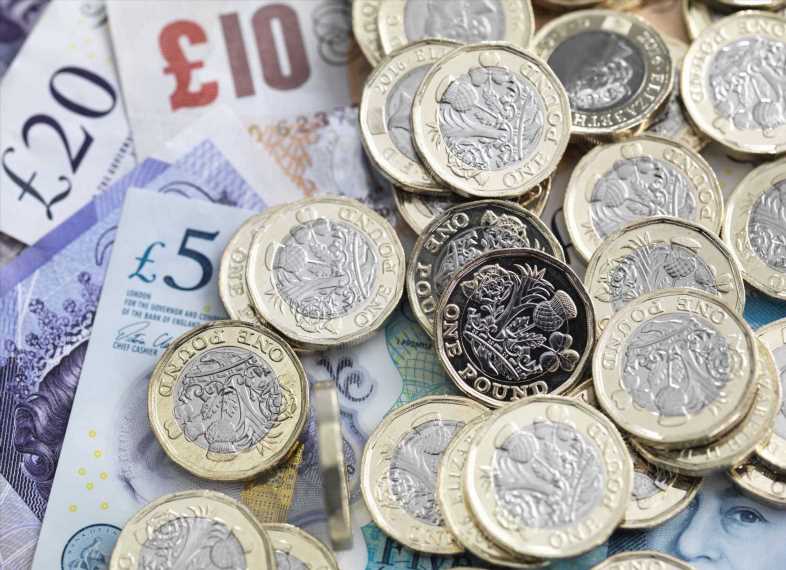THE UK's rate of inflation fell to 10.1% in March, the latest official figures show.
It comes after it rose unexpectedly in February to 10.4% after falling for three months in a row.

Despite the fall, inflation still rose higher than experts predicted as food and drink prices continues to soar.
Inflation is a measure of how the price of goods and services have changed over the past year.
Economists had forecast it would be 9.8%.
It has eased slightly since the eye-watering 11.1% seen in October, but is still close to a 40-year high.
READ MORE IN MONEY

Full list of supermarkets where prices are rising the most – are you paying more?

Mortgage payment calculator: How much can you borrow?
Prices are still rising, but at a slower rate than last month.
The slowdown is good news for stretched households, and some experts believe inflation has now peaked.
The ONS said that the drop in the price of fuel was part of the reason for the fall.
But this was off-set by increases for food and leisure activities.
Most read in Money

List of benefits that won't receive £301 cash next week – are you eligible?

Another supermarket makes huge change at 2,400 stores to rival Tesco

Major change to tax to be unveiled in days – how you will be affected?

Huge cinema chain gives major update after filing for bankruptcy
Food prices and non-alcoholic beverages rose by a huge 19.2% in the year to March, up from 18.2% in February – the highest annual rate for over 45 years.
ONS chief economist Grant Fitzner said: “Inflation eased slightly in March, but remains at a high level.
“The main drivers of the decline were motor fuel prices and heating oil costs, both of which fell after sharp rises at the same time last year.
“Clothing, furniture and household goods prices increased, but more slowly than a year ago.
“However, these were partially offset by the cost of food, which is still climbing steeply, with bread and cereal price inflation at a record high.”
Chancellor Jeremy Hunt said its important that inflation continues to fall to ease pressure on families and businesses.
He said: "The OBR (Office for Budget Responsibility) is forecasting we will halve inflation this year – and we’ll continue supporting people with cost of living support worth an average of £3,300 per household over this year and last, funded through windfall taxes on energy profits.”
What does it mean for my money?
Falling inflation indicates that the cost of goods and services are still rising but at a slower rate.
But prices are still higher than they were.
Alastair Douglas, chief executive of TotallyMoney said: “Inflation remains at sky-high levels, and is still a long way off the Bank of England’s 2% target.
"Meanwhile, people’s finances are being pushed to the brink, resulting in an increase in defaults on credit cards, loans and mortgages — a trend which is expected to continue over the next three months."
Food and drink prices rose by record levels in the year to March, putting further strain on household budgets.
Alice Haine, personal finance analyst at Bestinvest, said: "Households should not start splashing the cash just yet.
"People still need to spend wisely by living within their means, avoiding expensive debt and saving and investing to shore up their financial futures."
Experts believe the slowdown in the rate of inflation is unlikely to stop the Bank of England from hiking interest rates once more at its meeting in May.
The move will make the cost of borrowing, including loans, credit cards and mortgage repayments more expensive.
Although it's good news for savers as they may get better rates on their nest egg.
The latest inflation figures follow the news yesterday that Wage growth continues to be outstripped by soaring costs, with total pay including bonuses down by 4.1%.
Real terms wage cuts put a squeeze on household incomes especially when inflation remains high.
Meanwhile, official data released last week revealed that the UK's economy continued to narrowly avoid dipping into a recession.
Read More on The Sun

Sky users are realising there’s a free, easy way to keep getting TV during outages

The 7 things your HAIR can reveal about your health – and when to see a doctor
The economy stayed flat at no growth in February, compared to growth of 0.4% in the previous month.
A country is in recession if there are two consecutive quarters of no growth.
Do you have a money problem that needs sorting? Get in touch by emailing [email protected]
Source: Read Full Article

